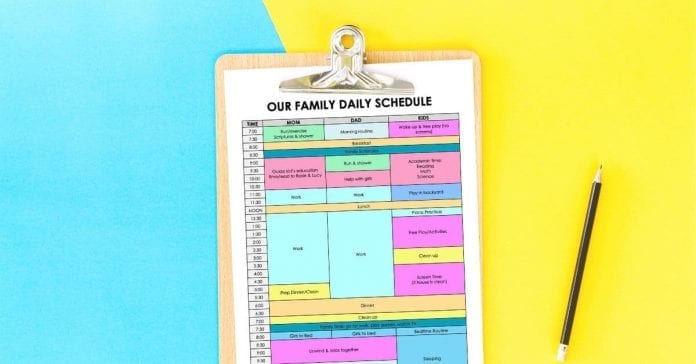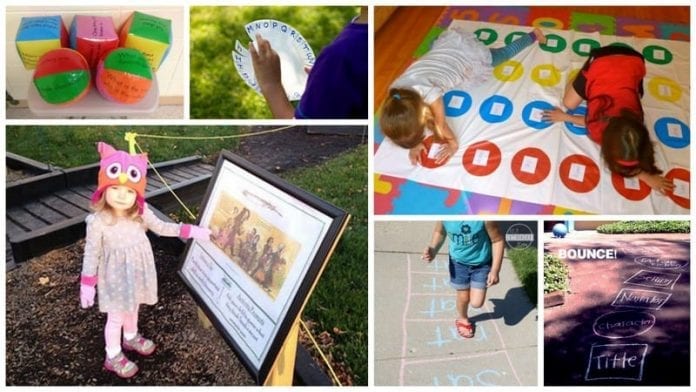Children used to corner the market when it came to “living in the moment.” The carefree nature of childhood allowed kids to focus on what was right in front of them above all else. From playing make-believe to tinkering with a handful of toys to spending countless hours outdoors, childhood has historically been a time blissfully spent in the present with nary a thought for the future.
However, in the 21st-century, technology has added undue levels of distractions, stresses, and strains onto the childhood experience. Things like 24/7 internet access, social media, remote school, and simply being continually “plugged in” to a device consistently challenge children’s ability to focus on the present.
If your child is struggling with technological distractions, they’re not alone. Fortunately, there are many ways that you, as a parent, can help them. Here are some suggestions for simple-yet-effective ways that you can help your kids focus in on the moment at hand.
1. Limit Device Usage

The most effective way to curb your child’s distractions is to straight-up remove their gadgets entirely at times. Access to everything from televisions to smartphones, tablets, and smartwatches can keep a child in front of a screen for hours upon hours each and every day.
In order to combat this tendency to screen-stare for hours on end, look for ways to curb device usage on a regular basis, such as:
- Capping television time at half an hour to an hour each day.
- Getting a kids phone that is designed to limit usage and prevent tech addiction (check gabbwireless.com)
- Requiring a certain amount of non-device time — reading, playing outside, etc. — in exchange for screen time.
By limiting your child’s screen time, you can reduce the number of distractions that hold them back from being in the present.
2. Create a Family Schedule

Another effective way to encourage awareness and engagement from your kids is by creating a family schedule. There are many family organizer apps that can help your entire crew sync up everything from your calendars to your to-do lists, events, files, photos, and meal plans.
By setting up a universal family schedule, you can bring a sense of structure and predictability to your day — both of which can help to retain your child’s attention. A regularly-updated schedule helps your children remain aware of upcoming activities, homework deadlines, and even allows them to track how much time they’ve spent on their devices. This easy access to scheduled events and responsibilities can do wonders in fostering an awareness of the present.
3. Provide Kinesthetic Activities

If you’re going to reduce your children’s screen time, it’s wise to initially provide something to help them fill in the natural gap in their time that using less tech will create. As your kids begin to navigate a schedule that has chunks of tech-free time, provide a number of kinesthetic activities that they can use to actively engage with the present. A few examples include:
- Working on an art project.
- Playing a board game.
- Putting together a puzzle.
- Making paper airplanes.
- Playing hide and seek.
By supplying engaging, screen-free activities, you can encourage your children to find fun and enjoyment where they are, rather than seeking it out on a screen.
4. Let Them Be Bored

While you should help your children adjust to less screen time, at a certain point, it’s also wise to simply let them be bored. Boredom provides a plethora of benefits that counteract the perpetual stimulation of using electronic devices all day long.
If a child is bored, it can cultivate an inner quietness that can stimulate their imagination, creativity, and problem-solving. It can also foster a general sense of self-awareness that cannot be easily reproduced with an app or television show.
5. Encourage Outside Time
Detoxing from electronic devices is an excellent first step in the process of becoming more present. However, if you also want to proactively push your children in a positive direction, you need do no more than encourage them to go outside.

Spending time in Mother Nature is a tried and true activity that, much like boredom, provides a host of different benefits, many of which are essential to living in the present. For instance, time spent outside can decrease stress, bolster mental health, improve sleep quality, and boost creativity. Playing, working, and even simply being outside is one of the best ways to focus on the distraction-less present. It is one of the simplest and best ways to dramatically enhance your child’s quality of life.
6. Support Routines

Screens and electronic devices have a nasty habit of devastating life’s natural structure. Checking your phone in the middle of the night can disrupt your sleep. Binging Netflix can throw off your schedule and encourage procrastination. Obsessively checking notifications can interrupt all manner of different activities.
If you want your children to break away from an overdependence on their devices, you can combat tech’s disrupting behavior by helping your kids maintain critical daily routines. The two most important of these take place in the morning and evening. A morning routine can wake you up and grease the wheels for a focused and productive day. An evening routine can help you disconnect from your gadgets, calm down your brain, and prepare for a restful night’s sleep. Both provide boundaries and structure that can be critical tools for staying in the present.
7. Teach Mindfulness and Gratitude

Finally, if you truly want to cultivate your kids’ ability to be in the present, take some time to address their attitude by:
- Encouraging them to pause often to consider their surroundings.
- Helping them list off what they’re grateful for on a regular basis.
- Enabling them to hone in on the present by practicing deep breathing exercises.
- Teaching them to be physically self-aware by reciting a progressive muscle relaxation script.
By training your child to be aware of themselves and grateful for what they have, you organically show them the benefits of being in the present throughout each day.
From attitudes and routines to schedules, unplugging, and being bored, there are many ways to help your kids be more present every day. The critical step lies with you. As their parent, it’s up to you to guide your children through the struggle to stay mindful. It falls to you to demonstrate the value of healthy habits. As you show them, in word and deed, the value of these activities, they will slowly develop an appreciation for the present that they can sustain all on their own.









